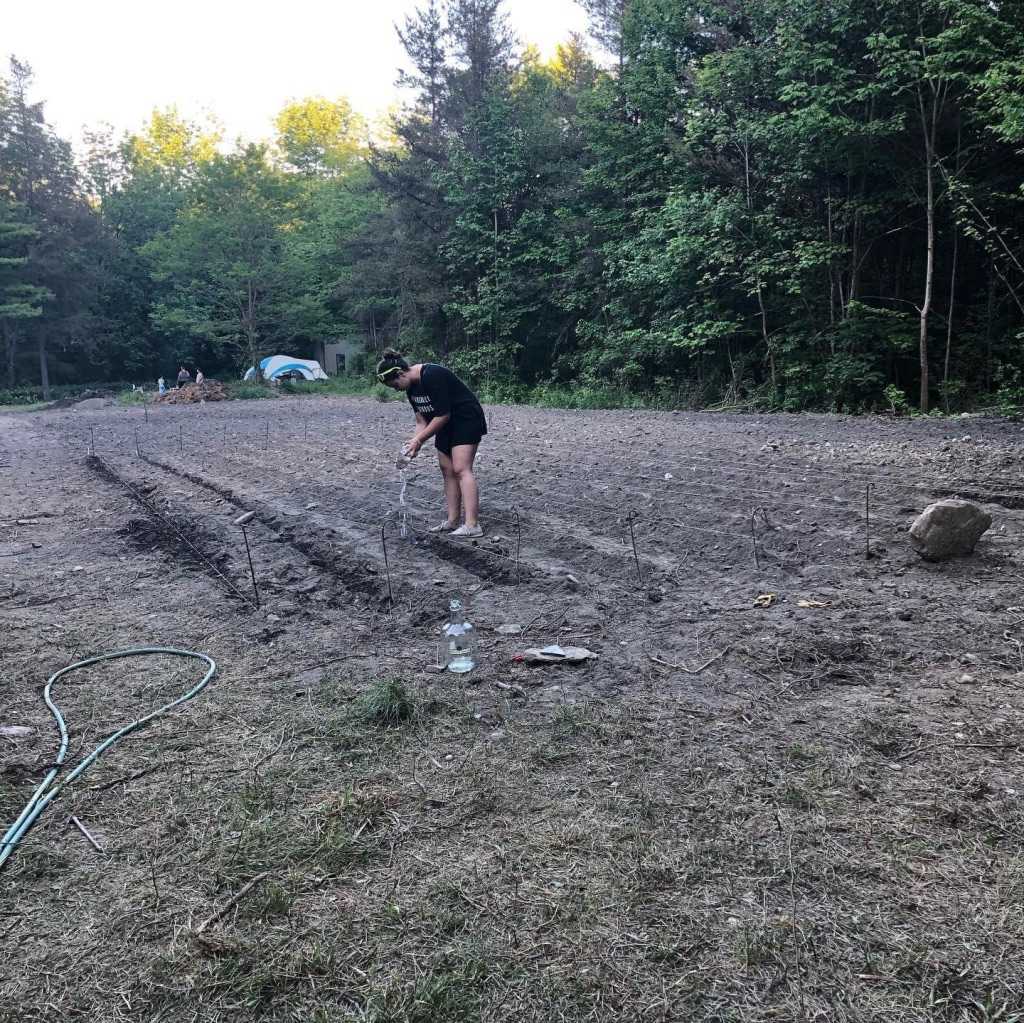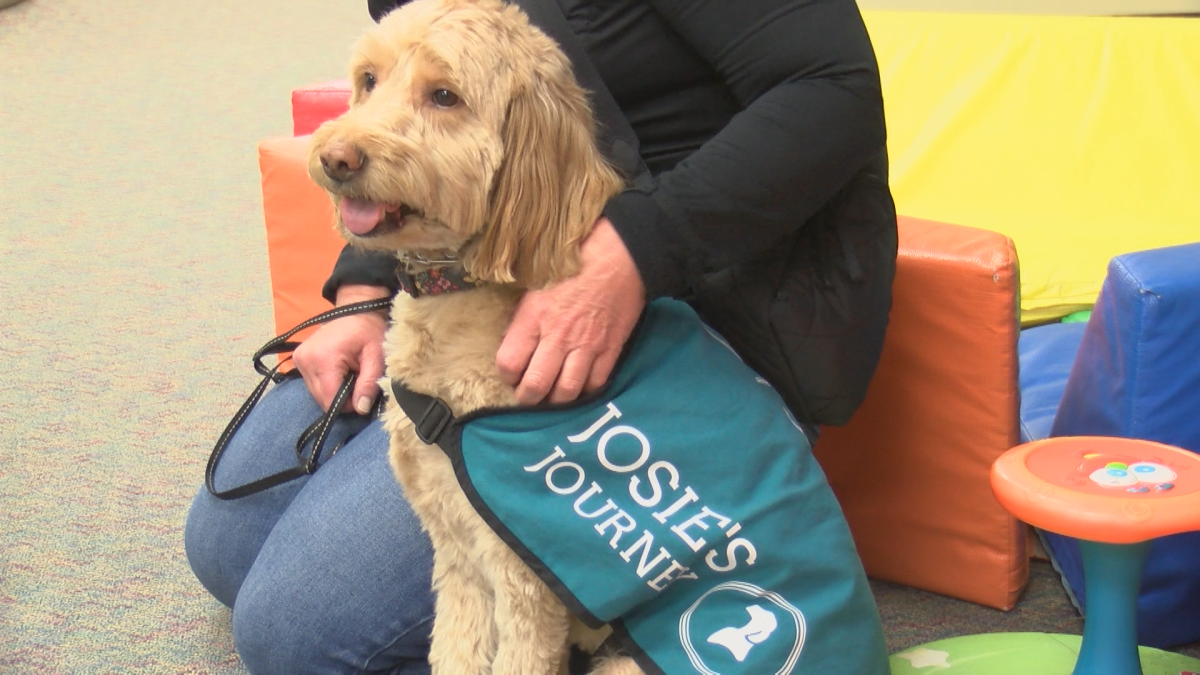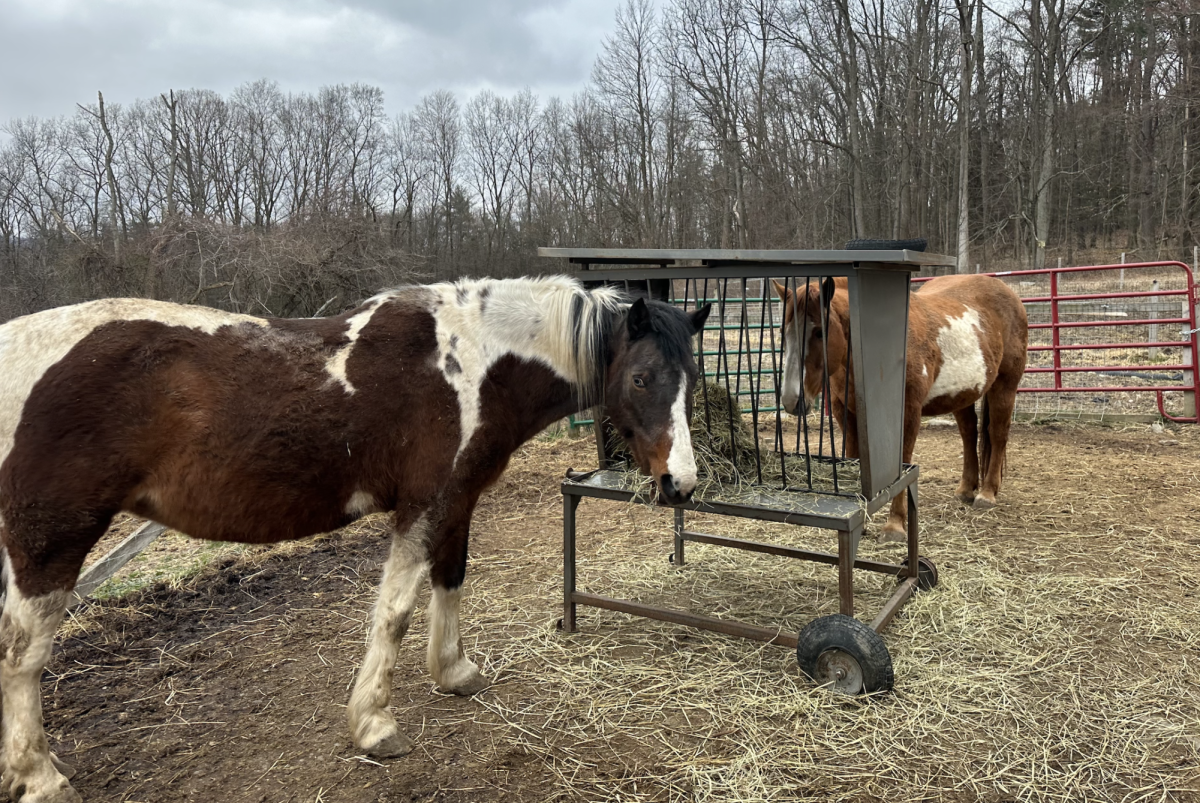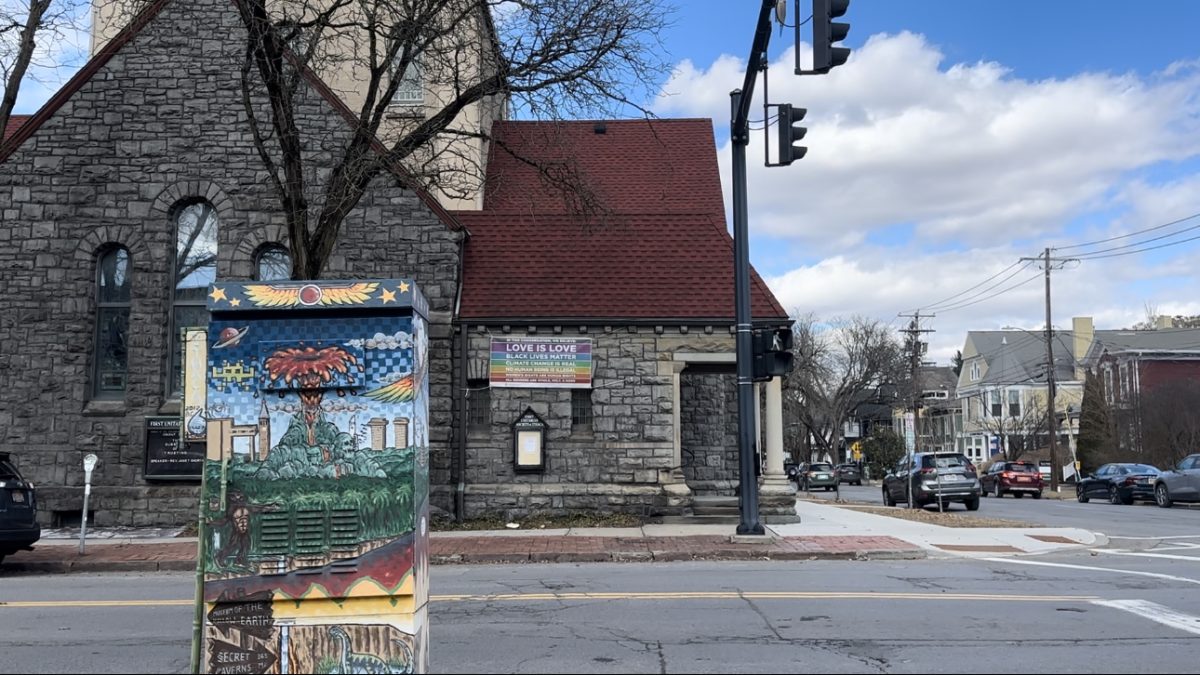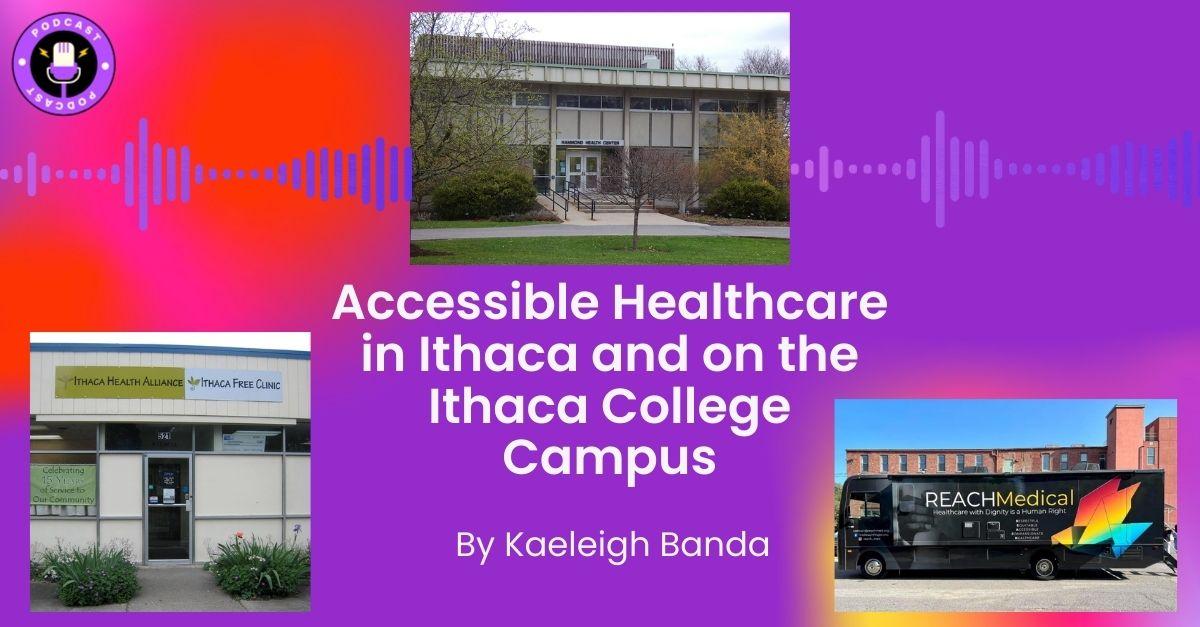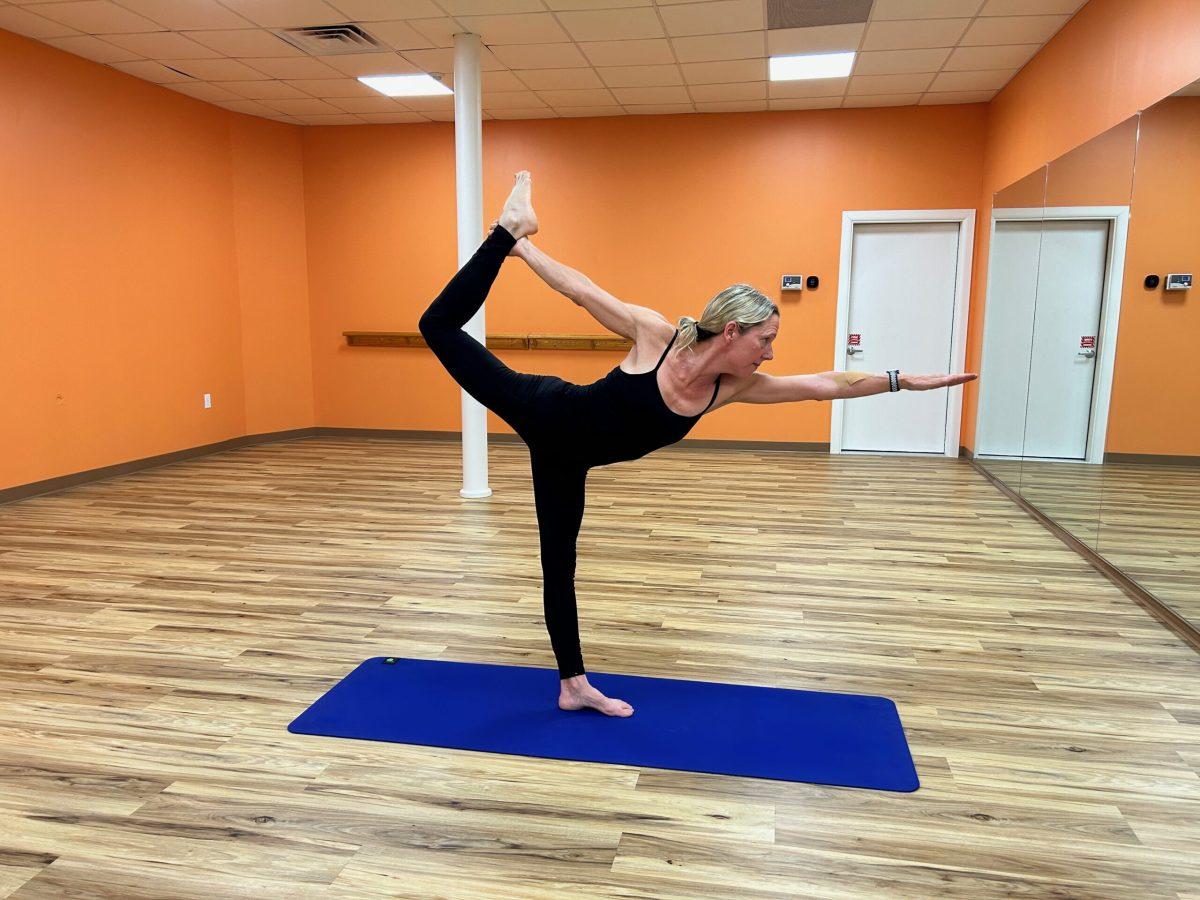In what is now known as Tompkins County, New York, the Gayogo̱hó:nǫ’ — Cayuga Nation — used to call this land their home. However, centuries later, Indigenous individuals are still fighting to get the rights to their land back.
The Traditional Center for Indigenous Knowledge and Healing (TCIKH) is a local non-profit organization with the goal of honoring Indigenous traditions, culture and ceremonies. Run by co-directors Joe Soto, his daughter Maya Soto and Alexas Esposito, its main values include ensuring food sovereignty — the right for individuals to grow food without having to rely on a capitalist structure — healing generational trauma resulting from colonization and oppression, and creating a sense of community.
“There are no organizations in our community, in Ithaca or Tompkins County, that actually support young people of color, especially Indigenous young people,” Maya Soto said. “That was my experience because that is the reality of where I live. And that was, I think in some ways, a traumatizing way to grow up, feeling that lack of community. I personally saw the Traditional Center as an opportunity to create that space for other young people.”
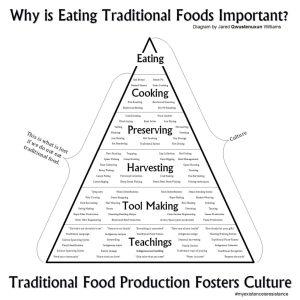
Also known as the “The People of the Great Swamp,” the Cayuga Nation was one of the original five nations of the Haudenosaunee Confederacy, or Iroquois. Tompkins County was also home to the native nations adopted by the Gayogo̱hó꞉nǫ’, the Saponis and the Tutelo, who fled to this region in the mid-1700s due to European colonization in the South. According to the nation’s website, New York State claims that the Cayuga Nation has no reservation and will not permit the nation free use and enjoyment of a treaty-established reservation.
TCIKH has been recognized as an official nonprofit since October 2019, but Esposito said that they have been working as a center for over two years. However, even before the center officially came together, the three have been intentionally organizing with the Indigenous community locally for at least a decade.
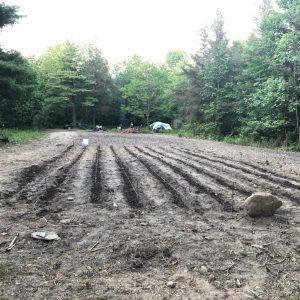
“The need [for TCIKH] was coming from a place, I would say, of one part empowerment and another part frustration,” Esposito said. “There are so many things that happen in Western society that do not understand the Indigenous way of life. When you consistently see it being exploited, misinterpreted, appropriated, there becomes a need to actually stand on behalf of yourself, your family and your people to ensure those things don’t continue to happen.”
Some of TCIKH’s projects include its Conuco, a farm of Indigenous food and seeds. In the earlier months of the pandemic, the center participated in a fully subsidized community supported agriculture (CSA) for several low-income households identifying as Indigenous, Black, or of color, a structure that provided them with local, fresh and consistent access to food.
“As Indigenous people, our understanding is that there’s no possible way at this point for life to resume to what it was before COVID,” Esposito said. “To have that expectation or idea of things is really kind of outlandish to us, so we’re just kind of moving forward and enjoying this evolutionary period in human society and strengthening our relationships in the community and using our non-profit as a way to be able to provide essential resources.”
The COVID-19 pandemic is disproportionately impacting people of color, including Indigenous individuals. Centers for Disease Control and Prevention (CDC) found that in 23 selected states, the cumulative incidence of COVID-19 cases among Indigenous individuals was 3.5 times that of non-Hispanic whites.
Esposito and Soto said that despite the circumstances, as a community unit, they have had a positive experience amid the pandemic.
“I feel like all of the things that have transpired in the way that they have, haven’t necessarily been negative,” Maya Soto said. “The changes that have happened at TCIKH, while they have definitely been a process, because it’s a process to re-evaluate and reassess and change anything, it hasn’t necessarily been a negative process.”

Another project is caney, or knowledge sharing, where individuals gather to learn and teach about Indigenous values. Esposito said that the center would hold workshops on historical trauma and intergenerational healing, but during the pandemic, it has been difficult to welcome people outside of the immediate community.
“We had this whole intention to welcome as many people at any given moment from the community to come onsite to care for the land and get their hands in the soil, and at the time that we had imagined that happening was when COVID really started to set in,” Esposito said. “We didn’t feel comfortable instituting all of these protocols for COVID and having people come up. It was almost easier for us to rely on our consistent small community to help versus just generally opening it up to people whom we didn’t know. That became very difficult because that was not our intention for this year.”
Joe Soto said that TCIKH works with other organizations, both white and people of color, to bridge some of the gaps in the community and create equity.
Amid the pandemic, TCIKH has moved some of its programming to a virtual setting. In October and November, the center hosted a two-part discussion series called “Sowing Sovereignty: Seeds of Hope.” The first discussion centered on combating systemic barriers of oppression, and the second focused on healing trauma through food and seed sovereignty.
The panels featured local food system advocates. At the Oct. 29 session, Josh Dolan, food gardening outreach educator at the Cornell Cooperative Extension of Tompkins County, emphasized the importance of non-profits during the pandemic.
“There hasn’t been much of a plan, like how are we going to deal with this in the long-term?” he asked. “That’s kind of fallen on the shoulders of community members. And through the work of Mutual Aid Tompkins and all the other BIPOC organizations in town that have historically provided mutual aid to their communities, I think it really showed our resilience in Tompkins County, and just the generosity and willingness of people willing to go out of their way to help others. That’s a story that we should be telling more.”
Joe Soto said that he is worried about the human tendency to dominate and control nature. He said that if humans hope to survive, they need to reevaluate this relationship.

